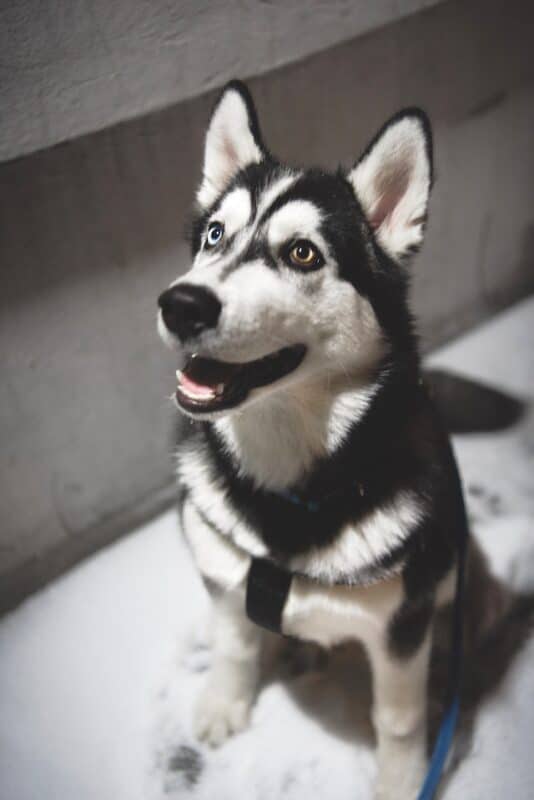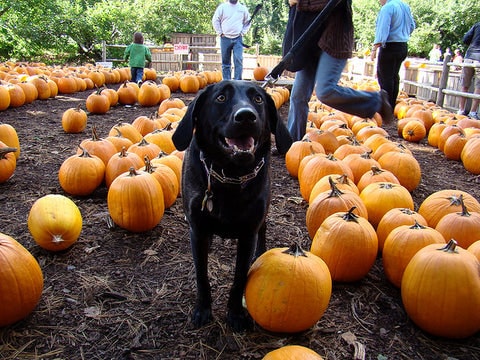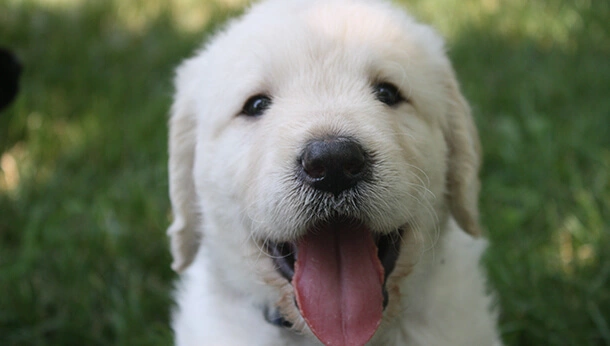Dogs bring so much joy to our lives, but when your dog is injured or sick, things can quickly turn scary. While no dog will be completely healthy his entire life, choosing a breed that is proven resilient in health may lead to a longer, happier future with your pup. Check out the following healthiest dog breeds to see if one is a good fit for your family.
Smaller healthy breeds
Pembroke Welsh Corgi

Are you looking for a smaller dog with smarts, easy trainability, and plenty of character? Then look no further than the Pembroke Welsh Corgi. This breed boasts a lifespan of 12 to 14 years and is no larger than 30 pounds. The health issue commonly associated with the Corgi is obesity, so a healthy diet and treats in moderation are a must — although that should go for any dog, regardless of breed. Affectionate, cute, and loving, the Corgi makes for an excellent family pet who loves to be part of your daily routines.
Cairn Terrier
Bred to hunt rodents and foxes, the Cairn Terrier of Scotland is a workhorse and healthy, hearty little dog. Upbeat and cheerful, this small breed will keep your life lively and interesting. Cairn Terriers have a lifespan of 13 – 15 years and tips the scales at no more than 14 pounds. Called the “best little pal in the world,” the Cairn Terrier is a healthy breed who loves to snuggle in your lap just as much as he enjoys running around with you in the backyard.
Chihuahua

The smallest dog breed in the world also happens to be one of the healthiest. Chihuahuas are tiny dogs with big personalities. Because they are reasonably genetically healthy, this breed has a lifespan of 14 – 18 years, although there are many instances of Chihuahuas living upwards of 20 years. Weighing in between 3 – 6 pounds, the Chihuahua is a loving, feisty companion dog who is perfect for families with children over age 8. Fun-loving and outgoing, the Chihuahua will be a mainstay in your family for many years.
Medium-sized healthy breeds
Pointer
Graceful, funny, and devoted to his owner, the Pointer is a family favorite amongst medium-sized breeds. Active and highly trainable, the Pointer needs lots of exercise and is perfect for pet parents who love to walk, run, or hike. Pointers have few genetic conditions and are proven healthy dogs with a lifespan of 12 – 17 years. If you are looking for a healthy, loving canine companion who will keep you exercising too, the Pointer is an ideal choice.
Whippet

Elegant yet muscular, the whippet is a graceful sighthound who, when trained and socialized properly, makes for a wonderful and friendly family companion. Exercise is a must with this active breed, as is a securely fenced-in yard; after all, the whippet can run at speeds of up to 35mph! Sensitive and intelligent, the whippet would do best in a home that reinforces positive training techniques. This breed has a lifespan of 12 – 15 years and is one of the healthier medium-sized breeds.
Beagle
Beagles are wonderful family dogs as they are incredibly friendly and great with kids. This is not only a very pretty breed of dog but also very healthy. If well taken care of, Beagles can live up to 15 years of age. Beagles are notorious for barking and howling, but a little bit of training early on will minimize these vocalizations.
Australian Shepherd
Active, highly intelligent, and loving, the Australian Shepherd ranks high on the list of healthy medium-sized dog breeds, With a lifespan of 12 – 15 years, this breed is an excellent fit for active pet parents and families. Like all breeds, the Australian Shepherd may be susceptible to genetic conditions, but overall, the breed is proven healthy; this trait is related to the breed’s athletic ability and active nature. This breed is fun-loving and will keep you and your kids on the go.
Large healthy breeds
Doberman
The loyal, protective Doberman is the 13th most popular breed in the United States and is amongst the healthiest large dog breeds. This highly intelligent and athletic dog can live between 10 – 13 years, an excellent age range for a large breed. The Doberman is highly trainable, making him a wonderful family pet; that trainability is also why this breed is used as are employed by the military and police. As with any dog, the Doberman may develop genetic health conditions; however, the breed is proven healthy compared to other large dogs.
Siberian Husky

If you want a loving dog with a vibrant personality and striking good looks, the Siberian Husky might be the breed for you. Huskies can live between 11 to 13 years, and with their athletic drive and clever, mischievous nature, they will keep pet parents and families entertained. Siberian Huskies are an active breed that is fond of running, so a high, fenced-in yard is a must as is giving them the daily exercise they need. This breed is subject to few genetic health conditions, and on the whole, is considered a healthy large-breed dog.
Irish Setter
The Irish Setter can live between 12 – 15 years, and much of this is due to the breed’s excellent genetics and athletic build. Bred initially as a field hunting dog in Ireland, this Setter breed has a striking rich red coat that accompanies an active and enthusiastic personality. The Irish Setter needs plenty of daily exercise and time with his pet parents. This breed is devoted to his people and needs to be around them regularly.
Healthy breeds still need pet insurance
Even the healthiest dog breeds are prone to accidents . Pet insurance is still recommended for your dog, even if he is or appears to be a relatively healthy canine.
A healthy dog means more time to spend with your best four-footed friend, but it can also mean paying fewer veterinary fees in the future. Get a pet insurance quote today and prepare for a long, happy life with your new dog.
References
- Stregowski, J. (2020). Pembroke Welsh Corgi Dog Breed Profile. Retrieved from https://www.thesprucepets.com/breed-profile-pembroke-welsh-corgi-1117986#common-health-problems
- American Kennel Club. (2020). Cairn Terrier. Retrieved from https://www.akc.org/dog-breeds/cairn-terrier/
- Dogtime.com. (2020). Chihuahua. Retrieved from https://dogtime.com/dog-breeds/chihuahua#/slide/1
- Animal Planet. (2020). Pointer Guide. Retrieved from http://www.animalplanet.com/breed-selector/dog-breeds/sporting/pointer.html
- Petonbed.com. (2020). Whippet. Retrieved from https://petonbed.com/whippet/
- Canna-Pet. (2017). Common Australian Shepherd Health Problems. Retrieved from https://canna-pet.com/common-australian-shepherd-health-problems/
- Pet Health Network. (2014). The Doberman Pinscher. Retrieved from http://www.pethealthnetwork.com/dog-health/dog-breeds/doberman-pinscher
- de Cardenas, C. (2008). Siberian Husky. Retrieved from https://www.petmd.com/dog/breeds/c_dg_siberian_husky
- Fitzgerald, S. (2019). Irish Setter. Retrieved from https://www.dogzone.com/breeds/irish-setter/












